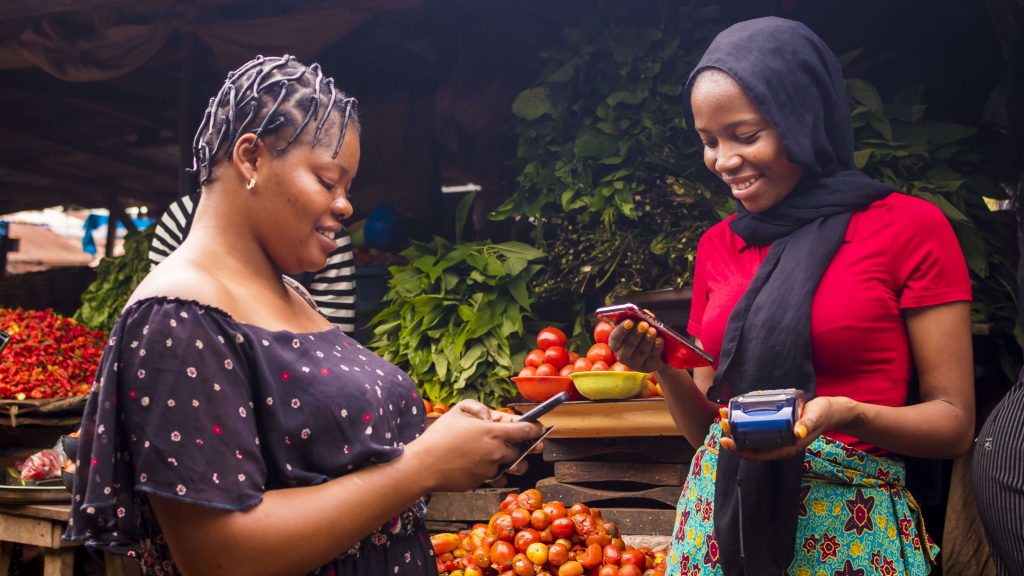advertisement
How Access To Finance Changes Lives

Africa has undoubtedly made immense gains in lifting people out of poverty. But it’s also clear that there’s still a long way to go, with the rest of the world gaining much more ground in eradicating extreme poverty. Efforts must be redoubled with a focus on innovative solutions that make a tangible difference in people’s lives if the continent is to meet the United Nations’ Sustainable Development Goal (SDG) of ending poverty in all forms by 2030.
On that front, access to finance is critical. It allows people to take out the loans they need to become homeowners or to study, for example. But it also allows entrepreneurs to access the funding they need to grow their businesses. The formalisation that comes from that access, meanwhile, can make it easier for businesses to take advantage of tax incentives and subsidies, further bolstering their growth.
Fortunately, there are a number of organisations across the continent that have found innovative and exciting ways of providing Africans with access to finance. In doing so, they’re not simply replicating what has worked elsewhere. Instead, they’re taking an approach that recognises the on-the-ground realities of finance in Africa and makes extensive use of the tools that ordinary Africans use most.
advertisement
There Exists A Massive Need
Before taking a deeper look at the approach some of those organisations are taking, it’s worth exploring how big of an issue access to finance currently is across Africa. According to World Bank data, just 35 per cent of people over the age of 14 in 28 sub-Saharan African countries had formal bank accounts in 2021. Of course, that average isn’t evenly distributed. Countries with mature formal financial sectors such as Mauritius (nearly 90 per cent) and South Africa (now at 85 per cent) have much higher rates of account holders than the likes of Sierra Leone and Guinea (both under 14 per cent).

advertisement
Even when you take mobile money – Africa’s biggest financial inclusion success story – into account, 57 per cent of Africans do not hold any kind of bank account, according to Africa Tech. Finding ways of shifting those numbers is absolutely crucial to alleviating poverty and changing lives. In addition to the examples I’ve already mentioned (of people taking out loans for themselves and businesses), there are a number of ways that access to finance can be transformative. Take savings for example. With easy access to financial products, people can save more easily and securely. That, in turn, makes it easier for them to ride out emergencies, invest in their own and their children’s future, and even eat healthier.
But it also allows people to access government assistance without having to stand in long queues, easily accept remittances from family members working abroad or in another part of the country, and access other financial services such as insurance.
Meeting The Need With Mobile
advertisement
Unsurprisingly, one of the most powerful tools in addressing this need for financial inclusion is the mobile phone. In countries with high mobile penetration rates such as South Africa, Kenya, and Nigeria, it’s common for people who might not even have access to electricity at home to have a mobile phone.
As a consequence, mobile money has been a vital enabler for millions of poor people in Africa who do not have access to formal financial services like banks. With mobile financial account ownership and usage continuously rising, it’s becoming the preferred account compared to traditional bank accounts in some places.
Innovative financial solutions like mobile money play a significant role in improving the lives of many people in urban and rural areas. In the past, that was simply down to the fact that it enabled people to send and receive money. But it’s evolved beyond that, giving people access to subscription services and even to sell goods and services across international borders.
MFS Africa has played a particularly important role in driving that evolution. MFS Africa is the largest digital payments hub on the continent. It works closely with mobile network operators, money transfer organisations and financial institutions to bring simple and relevant financial services to unbanked and underbanked clients.
Since its founding, it has connected more than 400 million mobile money accounts and 200 million bank accounts. Additionally, it has helped empower more than 200,000 mobile money agents in Nigeria along with more than 260,000 clients and businesses across the continent. And by the fact that it operates across more than 600 payment corridors, it’s made it much easier for people to send and receive money no matter where it comes from or where it’s going.
Building A Brighter Financial Future
With mobile penetration and rates of connectivity in Africa growing all the time, the role of mobile-first financial services will only grow more important. Indeed, there is no doubt that they will be vital if the continent is to reap the full benefits of financial inclusion. We’ve seen first-hand, through MFS Africa and other portfolio companies, how important innovation is to building that inclusion. It’s something that we’ve long believed in and which forms part of our mandate as a financing provider but it’s also something we’ll keep driving long into the future.
This article was written by Carol-Jean Harward, Investment Director, Norsad Capital